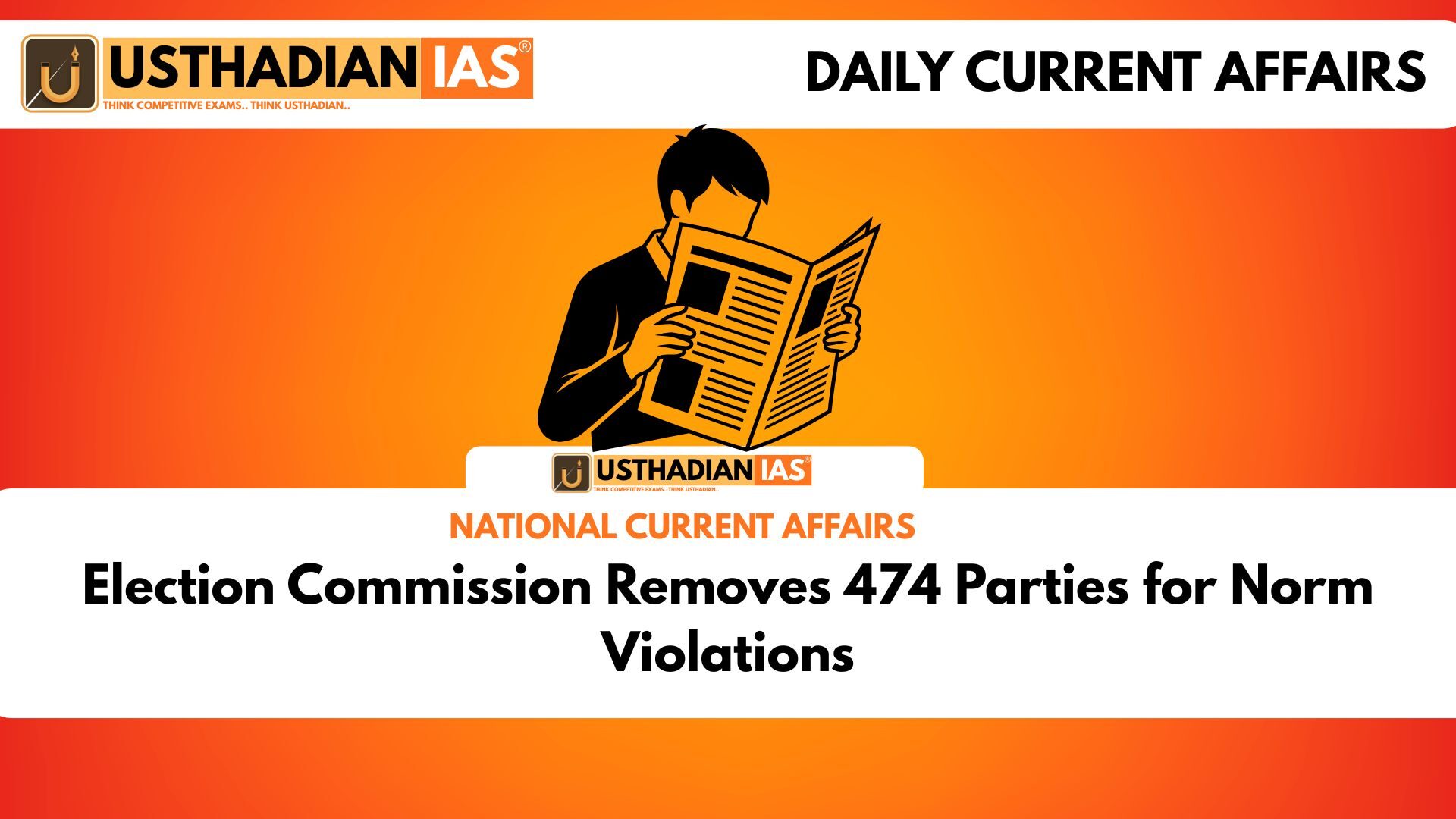Major Clean-Up by Election Commission
Election Commission Removes 474 Parties for Norm Violations: The Election Commission of India (ECI) has de-listed 474 Registered Unrecognised Political Parties (RUPPs) for failing to follow electoral and financial norms. This is the second major crackdown in two months, bringing the total number of delisted parties to 808. The move strengthens oversight on political participation and financial disclosures.
Static GK fact: The ECI was established on 25 January 1950 and functions under Article 324 of the Indian Constitution.
Why Parties Were Removed
Two primary violations led to this delisting. First, these parties failed to contest any election for six consecutive years, violating Section 29A of the Representation of the People Act, 1951. Second, many did not submit audited annual accounts for the past three financial years, undermining transparency in political funding.
Due Process by the Election Commission
The ECI directed Chief Electoral Officers (CEOs) of states and Union Territories to issue show-cause notices to non-compliant parties. Hearings were conducted before final orders were issued, ensuring a fair and transparent process. Decisions were based on reports from the respective CEOs.
Static GK fact: Political parties in India must submit audited accounts annually to the ECI for tax and compliance purposes.
Impact on Political Landscape
Before the crackdown, India had over 2,520 RUPPs. With 808 now delisted, the number has reduced to around 2,046. This streamlines the list of functional political outfits and reduces dormant or inactive entities, improving the credibility of the system.
Benefits of the Crackdown
The delisting reduces misuse of party registration for money laundering or tax evasion. It improves monitoring of active political outfits and builds public trust in elections. At the same time, it raises concerns for small regional parties that may face compliance hurdles due to resource limitations.
Legal Framework for Compliance
Under Section 29A of the RP Act 1951, political parties must:
- Be registered with the EC
- Contest elections within six years
- Submit audited accounts regularly
- Provide detailed expenditure reports
Failure to comply can lead to cancellation of registration, as seen in this move.
Static GK Tip: Recognised parties receive privileges like reserved symbols and free airtime during elections.
Way Forward
The step highlights the ECI’s role in ensuring democratic accountability. With 2026 State elections and the 2029 Lok Sabha elections approaching, stricter compliance rules will help maintain a transparent electoral system. Political parties must now adopt timely reporting and genuine participation to avoid being struck off.
Static Usthadian Current Affairs Table
Election Commission Removes 474 Parties for Norm Violations:
| Topic | Detail |
| Number of parties delisted in latest move | 474 |
| Total parties delisted in two months | 808 |
| Section invoked | Section 29A, Representation of the People Act, 1951 |
| Reason for delisting | Inactivity in elections and failure to submit accounts |
| Remaining RUPPs after delisting | Around 2,046 |
| Authority responsible | Election Commission of India |
| Year of establishment of ECI | 1950 |
| Constitutional provision for ECI | Article 324 |
| Compliance requirement | Annual audited accounts and expenditure reports |
| Upcoming major elections | 2026 State elections, 2029 Lok Sabha elections |








